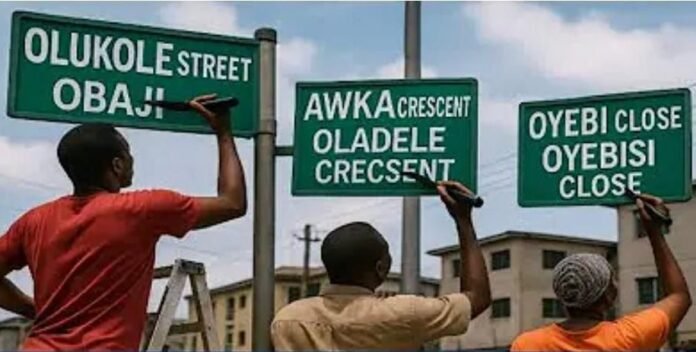The Think Yoruba First Group has warned non-indigenous residents in Lagos and other Yoruba territories to stay clear of decisions that concern the cultural and political affairs of the land.
The group gave the warning while responding to criticisms from Ohanaeze Ndigbo over the renaming of some streets in Lagos.
The Yoruba organisation maintained that the right to rename streets lies solely with the Yoruba people, not with settlers.
Ogbeni Oluwole Lewis, the Public Relations Officer of the group, made it clear that Yoruba identity and sovereignty are not up for negotiation.
“We won’t outsource, lease or rent out our sovereignty and birthright to any settler colony, no matter how many statements or noise they make; this decision is non-negotiable!” he said firmly.
Lewis insisted that those opposing the renaming of streets in Lagos should reconsider their positions, stating that Yoruba land is not a shared heritage with any other group.
‘Yorubaland Decisions Are Not for Outsiders’
The group reminded settlers and migrants that street names must reflect the identity of the host community, not that of strangers.
According to Lewis, “The convention worldwide is for settlers to respect the host communities and their right to make decisions; whoever feels wronged by decisions taken by Yoruba in Yorubaland is constitutionally empowered and advised to relocate.”
He stated that the Yoruba people have the right to name or rename streets as they see fit, in a way that strengthens their historical and cultural bonds.
“We are not obliged to even engage or debate such changes with settlers, the moment we start allowing outsiders to dictate such, it stops being Yorubaland.”
Lewis accused critics of attempting to interfere in what is strictly an internal affair, warning that such attempts will not be entertained.
Expect More Street Name Changes — Think Yoruba First
In a strong message to settlers, the group said more changes should be expected soon.
“The names of places must reflect the cultural ties of the locals,” he said, adding that anyone who cannot align with that should prepare for what lies ahead.
The statement comes amid recent ethnic tensions in Lagos, where the renaming of public spaces has led to heated debates over who has the right to make such changes.
For more on Nigeria’s constitutional structure and state powers, visit the National Assembly of Nigeria.
Rate, Like 👍, Comment💬, share this article, Follow us on our social media handles, and Submit your own story to get featured and earn rewards!







